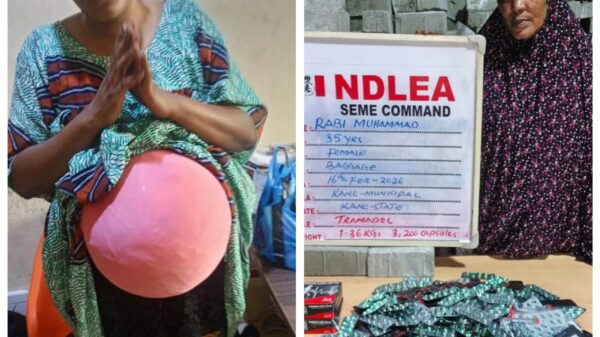By Arize Nwobu
The Central Bank of Nigeria (CBN) is working hard to enable the country overcome some basic economic challenges and reset the economy on a right footing.
The challenges may not be easy to overcome in the short run because of the extent of damage the economy has suffered over the past several years, but they are surmountable in the long run if the present efforts of CBN are sustained.
Among the basics, CBN is making great efforts to support and boost local food production and ensure food security. Food security is ‘’when all people at all times have physical, social and economic access to sufficient, safe and nutritious food that meets their dietary needs and food preferences for an active and healthy life.’’ It is a fundamental requirement in nation building and which helps in poverty reduction and promotes economic growth and development and job creation.
CBN Governor, Godwin Emefiele has been noted in some circles as the hardest working and most patriotic Governor of the Bank in recent times. Under his leadership, CBN has taken development financing to greater heights in the attempt to catalyze economic growth and restructure and redefine the economy for the better. And the results are becoming visible.
Recently, Emefiele was declared ‘’Man of the Year 2021’’ by Money Report, a Nigerian based business magazine which attested as follows: ‘’Without his commitment to the fight against COVID-19 the grave yard for victims would have been as large as 100 standard football fields put together.’’
It added: ‘’every challenge against Nigeria has called Emefiele to severe battle, and he makes no fuss about it. In the over 60 years of the life of the CBN, Emefiele is one of the two that have won a second term bid as Governor out of about ten. One can see the reason why he has remained highly intrepid, accomplished and focused.’’
Emefiele had noted that CBN concentrated on private sector agricultural development and offered rice millers long-term financing alternatives for commercial farms.
He further noted that CBN uses the Private –Sector led Accelerated Agriculture Development Scheme to support rice millers to finance commercial farms, land development, irrigation facilities and other infrastructure to enhance production.
Recently, CBN unveiled the Gerewa Rice Mill, an ultra-modern 420 metric tons per day capacity rice milling factory in Kano State. Some years earlier, Dangote Group had set up a rice mill in Kebbi.
The Group also has the Dangote Rice Out Growers Scheme in Gorongo Local Government Area, Sokoto. Also Coscharis Group of Companies had launched a $35 million Rice Mill in Anambra State which has a total capacity of 120,000 metric tons.
Rice producing states in Nigeria include Anambra, Cross River, Benue, Ebonyi, Jigawa and Sokoto. Others are Niger, Plateau, Katsina, Kaduna and Zamfara. Most of them have recorded remarkable progress in rice production with harvests outstripping the projections.
CBN initiated the ‘’Rice revolution’’ in 2015 through the Anchor Borrowers’ Programme (ABP) and other development financing initiatives which aim at boosting local food production. Experts have noted that development financing is the way to go in the efforts to catalyze growth and development in underdeveloped economies.
Accordingly, Emefiele had noted that CBN’s intervention in the agriculture sector would be driven towards improving productivity in areas with high domestic demand, where opportunities exist to improve domestic supply such as fish, wheat, sugar and rice.
Rice is a cash crop which had been noted to generate more income for Nigerian farmers than any other cash crop. It is the most basic food stuff and it has been said that half of the world’s population live on rice. It is one of the most consumed food of over 70 per cent of the population and is considered a luxury food for special occasions.
Demand for rice s the supply as a result of which it became one of the most imported food items. Between the years 2010-2019, Nigeria’s rice importation stood at 2. Million tons and the import bill was N467.96 billion at the international price of $435.3 per ton. It was projected to increase by 93 per cent by 2029.
The Federal Government through the CBN placed a ban on the importation of rice which is among the 41 items that CBN excluded from accessing foreign exchange through the official window. The importation was also restricted through the border closure by the Federal Government.
Nwobu is a Lagos- based Chartered Stockbroker and Business Journalist. He wrote via [email protected]. Tel: 08033021230
![]()






























































